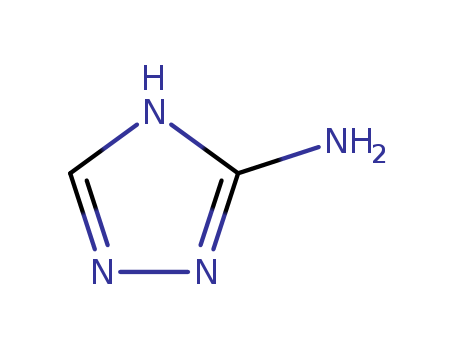

Contact Us: +86-15508631887(WhatsApp/WeChat)
Email:sales@finerchem.com
|
Production Methods |
3-Amino-1,2,4-Triazole(Amitrole) is synthesized by condensing formic acid with aminoguanidine and can be purified by recrystallization from methanol. |
|
Air & Water Reactions |
Water soluble. Aqueous solutions are neutral. Dust may form an explosive mixture in air. |
|
Reactivity Profile |
3-Amino-1,2,4-Triazole is a triazole derivative. The triazoles are a group that contain several derivatives that are highly explosive materials. They are sensitive to heat, friction, and impact. Sensitivity varies with the type substitution to the triazole ring. Metal chelated and halogen substitution of the triazol ring make for a particularly heat sensitive material. Azido and nitro derivatives have been employed as high explosives. No matter the derivative these materials should be treated as explosives. It forms chelates with some metals. 3-Amino-1,2,4-Triazole is corrosive to iron, copper and aluminum. Forms salts with most acids and alkalis. It is incompatible with strong oxidizers, strong acids, acid chlorides and acid anhydrides . |
|
Hazard |
Toxic; carcinogen. |
|
Health Hazard |
Amitrole (3-Amino-1,2,4-Triazole) has low acute toxicity; in experimental animal studies subchronic exposures were associated with changes in the thyroid and chronic exposures were carcinogenic.Intentional ingestion of a mixture that contained 20 mg/kg amitrole did not cause any signs of intoxication.1 In one reported case study, inhalation of a large amount of amitrolecontaining herbicide was associated with acute toxic reaction of the lungs.2 Lung injury was thought to be secondary to direct toxic damage to the alveolar lining cells. The remarkable lack of any other reports describing pulmonary toxicity of this herbicide was noted, in addition to the presence of other chemicals in the herbicide solution. |
|
Fire Hazard |
Literature sources indicate that Triazol-3-amine is non-combustible. |
|
Trade name |
AMITRIL?; ATLAZIN?; ATLAZINE? FLOWABLE; AT?; 3-AT?; AT-90?; ATRAFLOW PLUS?; AZAPLANT?; AZAPLANT KOMBI?; AZOLAN?; AZOLE?; BOROFLOW? A/ATA; CAMPAPRIM? A 1544; CDA SIMFLOW PLUS?; CHIPMAN? PATH; CYTROLE?; DIUROL? AMITROLE; DOMATOL?; ELMASIL?; EMISOL?; FARMCO?; HERBAZIN PLUS SC?; HERBICIDE? TOTAL; MASCOT HIGHWAY?; MSS AMINOTRIAZOLE?; MSS SIMAZINE?; ORGA-414?; RADOXONE? TL; RAMIZOL?; RASSAPRON?; SIMAZOL?; SIMFLOW PLUS?; SOLUTION CNCENTREE T271?; SYNCHEMICALS? TOTAL WEED KILLER; SYNTOX?; TORAPRON?; VOROX?; WEEDAR?; WEEDAZIN?; WEEDAZOL TL ?; WEEDOCLOR? |
|
Biochem/physiol Actions |
BTK (also known as Bruton tyrosine kinase) plays a crucial role in B-lymphocyte differentiation and activation. BTK interacts with SRC homology 3 domains of FYN, LYN and HCK that are activated upon stimulation of B- and T-cell receptors.Defects in the BTK gene cause Agammaglobulinemia, an X-linked immunodeficiency characterized by failure to produce mature B lymphocyte cells and associated with a failure of Ig heavy chain rearrangement. The unique role of BTK makes it a desirable target for potential anti-cancer, anti-inflammatory and anti-viral agents as well as other treatments. |
|
Safety Profile |
Confirmed carcinogen with experimental carcinogenic, tumorigenic, and neoplastigenic data. Poison by intraperitoneal route. Moderately toxic by ingestion. An experimental teratogen. Other experimental reproductive effects. Mutation data reported. When heated to decomposition it emits toxic fumes of NOx,. An herbicide and plant growth regulator |
|
Carcinogenicity |
Amitrole is reasonably anticipated to be a human carcinogen based on sufficient evidence of carcinogenicity from studies in experimental animals. |
|
Environmental Fate |
Soil. When radiolabeled amitrole-5-14C was incubated in a Hagerstown silty clay loam, 50 and 70% of the applied amount evolved as 14CO2 after 3 and 20 days, respectively. In autoclaved soil, however, no 14CO2 was detected. The chemical degradation in soil was probably via hydroxyl radicals (Kaufman et al., 1968). The average persistence in soils is 2–4 weeks (Hartley and Kidd, 1987)Plant.Amitrole is transformed in plants to form the conjugate β-(3-amino-1,2,4-triazol- 1-yl)-α-alanine (Humburg et al., 1989) and/or 3-(3-amino-s-triazole-1-yl)-2-aminopropionic acid (Duke et al., 1991). Amitrole is metabolized in Canada thistlSurface Water. In pond water, adsorption to suspended sediments was an important process. The initial half-life was reported to be no more than 68 days. After 120 days, 20% of the applied amount remained (Grzenda et al., 1966). The biodegradationPhotolytic. Direct photolysis of amitrole is not expected to occur since the herbicide shows little or no absorption greater than 295 nm (Gore et al., 1971)Chemical/Physical. Reacts with acids and bases forming soluble salts (Hartley and Kidd, 1987). Emits toxic fumes of nitrogen oxides when heated to decomposition (Sax and Lewis, 1987); however, incineration with polyethylene results in more than 9 |
|
Purification Methods |
It crystallises from EtOH (charcoal), then three times from dioxane [Williams et al. J Phys Chem 61 261 1957]. [Beilstein 26 H 137.] Possible carcinogen. [Beilstein 26 H 137, Temple & Montgomery 1,2,4-Triazoles —The Chemistry of Heterocyclic Compounds Vol 37 (Weissberger & Taylor eds.). Wiley & Sons NY 1981, ISBN 0-471-0656-6.] |
|
Definition |
A powerful plant growth suppressant and cotton defoliant that is readily absorbed by leaves and roots. 3-Amino-1,2,4-Triazole inhibits many aspects of growth and differentiation including cell division in the primary root meristems in some plants. |
|
General Description |
Odorless white crystals or white powder. Bitter taste. Melting point 147-159°C. Sublimes undecomposed at reduced pressure. Used as a post-emergence herbicide. |
|
Agricultural Uses |
Herbicide, Plant growth regulator: A non-food use herbicide for control of grasses, woody plants and broad-leaf weeds on hard surface and in areas where crops are not normally grown. |
InChI:InChI=1/C2H4N4/c3-6-2-1-4-5-6/h1-2H,3H2
A chiral metal-organic framework, [Cu(at...
-
In this work, we designed and synthesize...
A series of novel tricyclic pyrimidine-f...
A series of aminoguanidine derivatives b...
The catalytic effect of ruthenium(III) o...
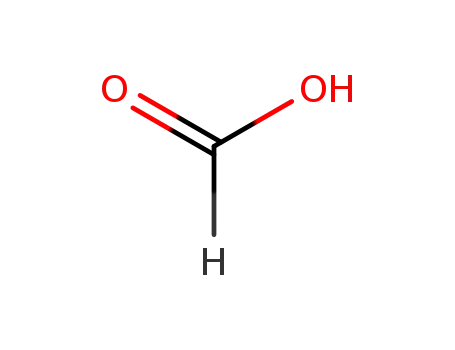
formic acid

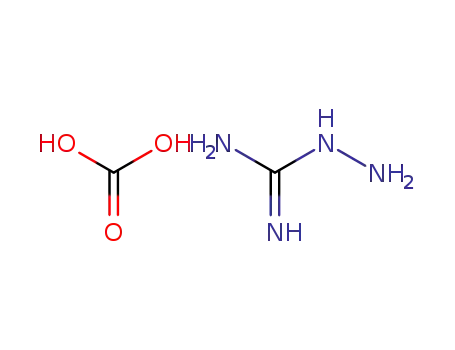
aminoguanidine bicarbonate

3(5)-amino-1,2,4-triazole
| Conditions | Yield |
|---|---|
|
formic acid; aminoguanidine bicarbonate; at 20 ℃;
In toluene; for 20h; Reflux;
|
93% |
|
|
|
|
at 115 - 120 ℃; for 5h;
|

triazolinethione


azidotrimethyltin


4-(bromomethyl)benzyl alcohol

3(5)-amino-1,2,4-triazole
| Conditions | Yield |
|---|---|
|
With ammonia; aminoguanidine; In methanol; N,N-dimethyl-formamide; toluene;
|
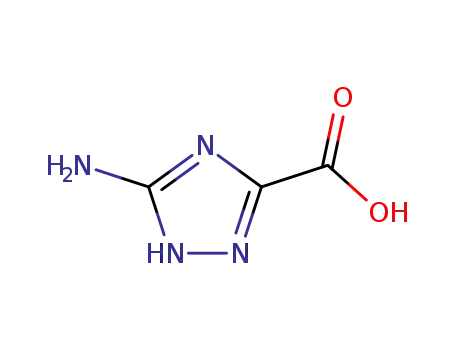
5-amino-1H-[1,2,4]triazole-3-carboxylic acid
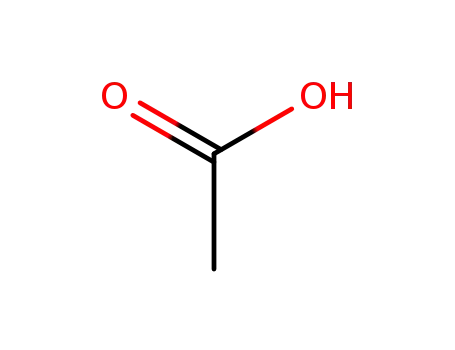
acetic acid
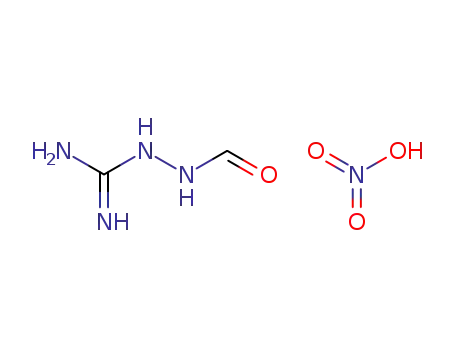
formylamino-guanidine; nitrate
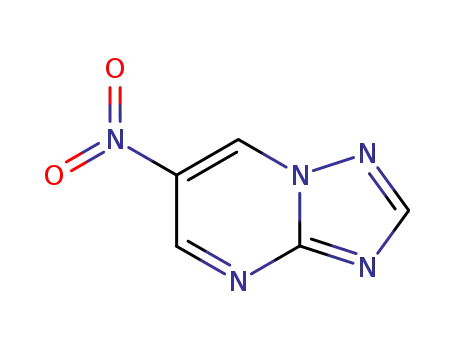
6-nitro-1,2,4-triazolo[1,5-a]pyrimidine
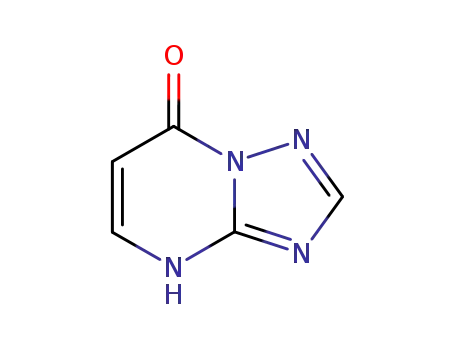
4,7-dihydro-1,2,4-triazolo<1,5-a>pyrimidin-7-one
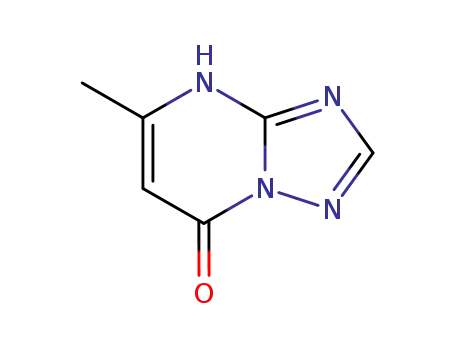
4,7-dihydro-5-methyl-7-oxo[1,2,4]triazolo[1,5-a]pyrimidine
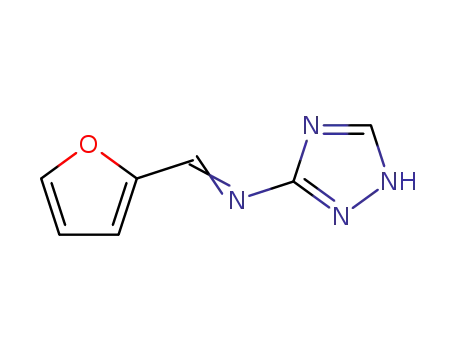
furan-2-ylmethylene-(1H-1,2,4-triazol-3-yl)amine
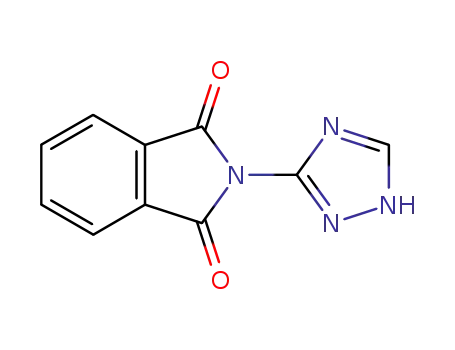
2-[1H-(1,2,4)triazole-3-yl]-isoindole-1,3-dione
